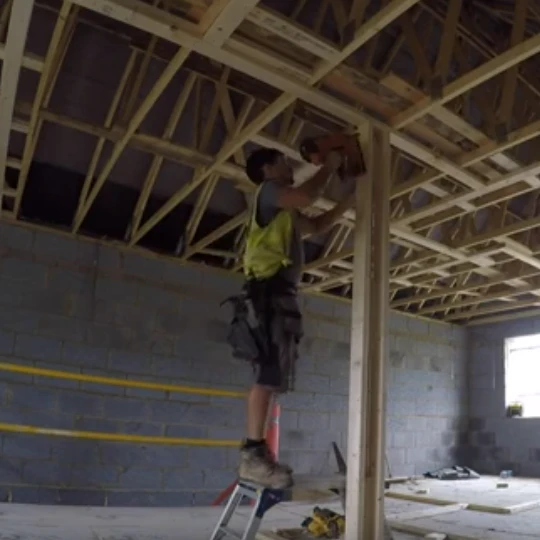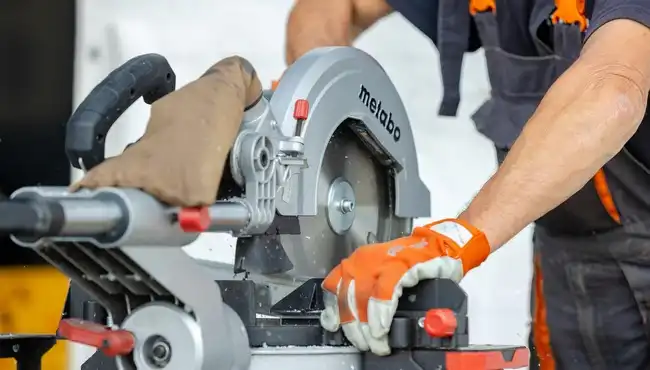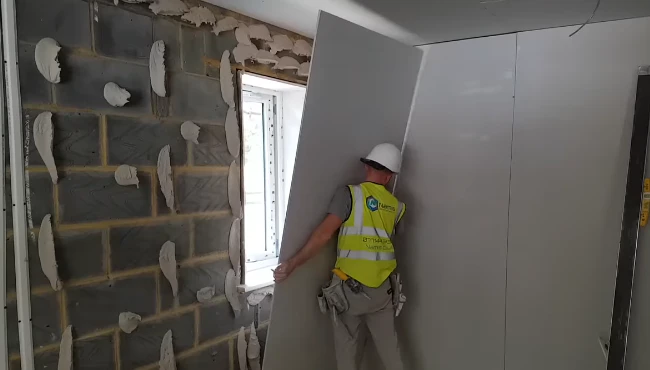What does a carpenter do?
Carpenters play an important role in the construction process on the building site. Their work goes beyond just hammering and nailing; they make everything from formwork for concrete to roofing and everything in between. Whether it’s constructing garden shed, installing interior doors or fabricating custom wood elements, these professionals ensure that buildings are not only functional, but aesthetically pleasing as well.
It’s worth noting that joiner is a similar profession, often involving the manufacture and assembly of wooden products such as furniture and cabinets in a workshop.
Required skills
Becoming a carpenter requires a mix of technical and practical skills. Precision, attention to detail and good hand-eye coordination are essential. Strong math skills for accurate measurements, physical stamina for the manual work involved. In addition, problem solving skills and the ability to interpret technical drawings are critical to success in this role.

Qualifications
A solid foundation for a career in carpentry is often the acquisition of a level 2 or level 3 NVQ diploma in woodwork.
Obtaining a blue CSCS or gold CSCS card is essential. The blue card indicates a skilled worker, while the gold card is for supervisors and indicates a higher level of expertise.
Benefits
One of the main benefits of working as a carpenter on a construction site is the satisfaction of seeing tangible results of your work. The work provides opportunities for creativity and problem solving, as each project presents unique challenges. Carpenters often enjoy job security, a variety of projects and the opportunity to work both indoors and outdoors. In addition, the demand for skilled carpenters in the UK is consistently high, providing a steady stream of employment opportunities.
Challenges
Despite the benefits, being a carpenter on a construction site also comes with a number of challenges. The physical demands of the work can be exhausting and require strength and stamina. Precision is key and mistakes can be costly. However, with experience and the right attitude, these challenges can be overcome.
Career path and progression
With experience and additional qualifications, a carpenter can move up the career ladder on the construction site. Some specialize in areas such as roofers or formworkers, while others move into supervisory roles or management positions. Continuous learning and staying up to date on industry trends can open doors to specialized jobs or teaching positions.
Statistics
Carpenters and joiners in the UK* – Prognosis
Average Annual Increase
ARR**
SOURCE: CITB ” Labour Market Intelligence Report (2024 – 2028)”.
* These prognosis calculations assume constant ARR and growth rate without significant external disruptions.
** ARR – Annual Recruitment Requirement is a metric used to estimate the number of new workers needed annually to meet labour market demands in a specific industry, region, or occupation.
How much could you earn as a carpenter
Carpenters in the UK earn varying wages based on experience and employment status. Entry-level employed carpenters earn around £14 per hour (£27,500 annually), while experienced ones earn up to £18 per hour (£40,500 annually). Self-employed carpenters charge approximately £27 per hour, with daily earnings ranging from £195 to £250, depending on experience and location.
*Information sourced from reputable recruitment sites and agencies, reflecting the latest job market insights and trends. Figures can vary based on factors such as specific job requirements, individual qualifications, and regional economic conditions. Additionally, self-employed professionals should account for expenses such as tools, materials, insurance, and transportation when calculating their net earnings.
Typical hours per week
Standard work hours per week
(Employed)
Working hours per week with overtime
(Employed and Self-employed)
Carpenters typically work a full-time week, averaging 40 to 44 hours per week. However, due to the nature of construction projects, overtime may occasionally be required, especially when deadlines are tight. The flexibility of working hours depends on the project and the employer.
Conclusion
The carpentry profession in the UK offers many opportunities to those who are passionate about working with wood and creating permanent structures. With the right qualifications, a willingness to continually learn and a passion for making structures that shape our world, a fulfilling and financially rewarding career awaits those who choose this noble profession.

